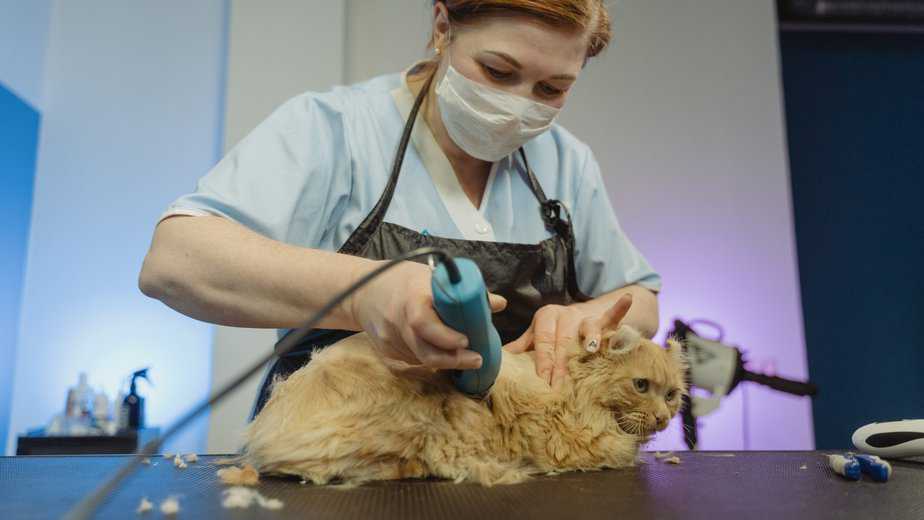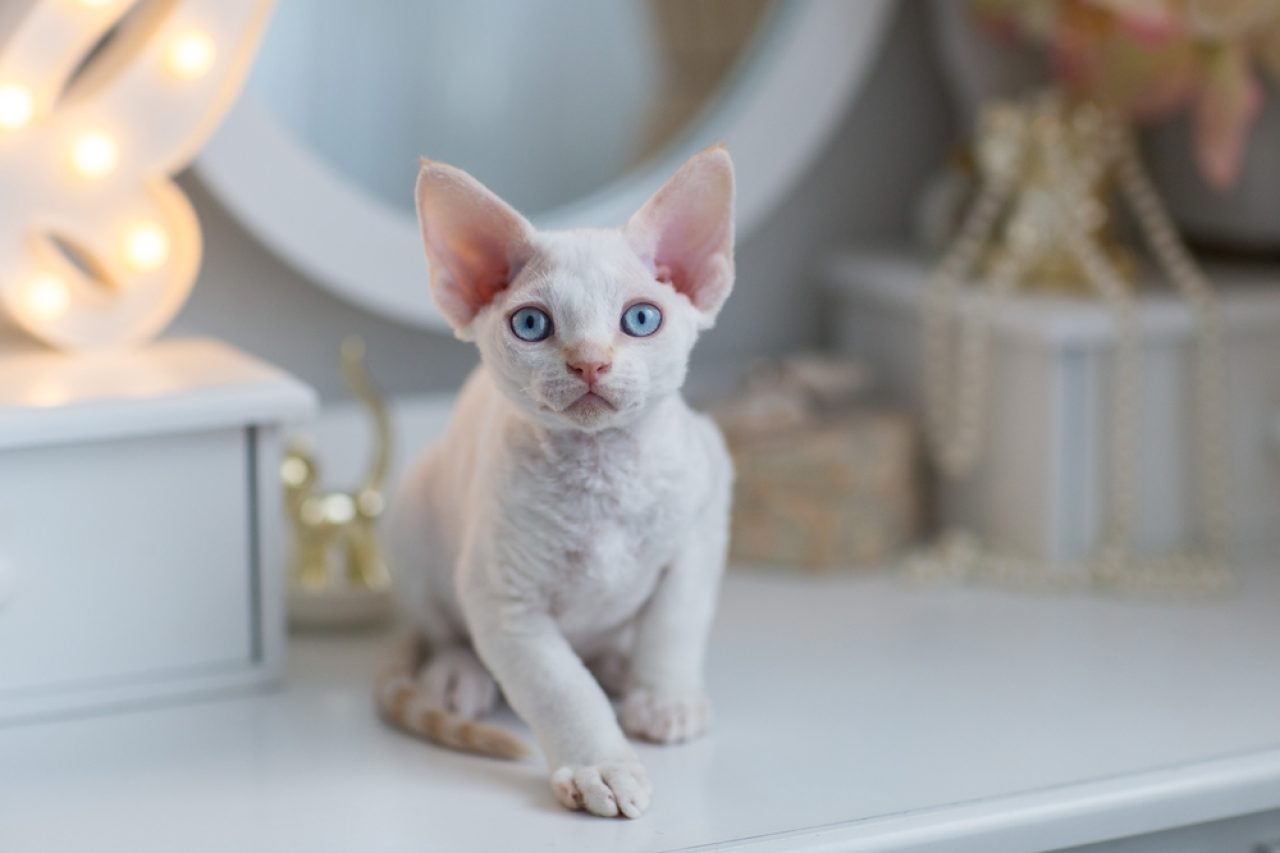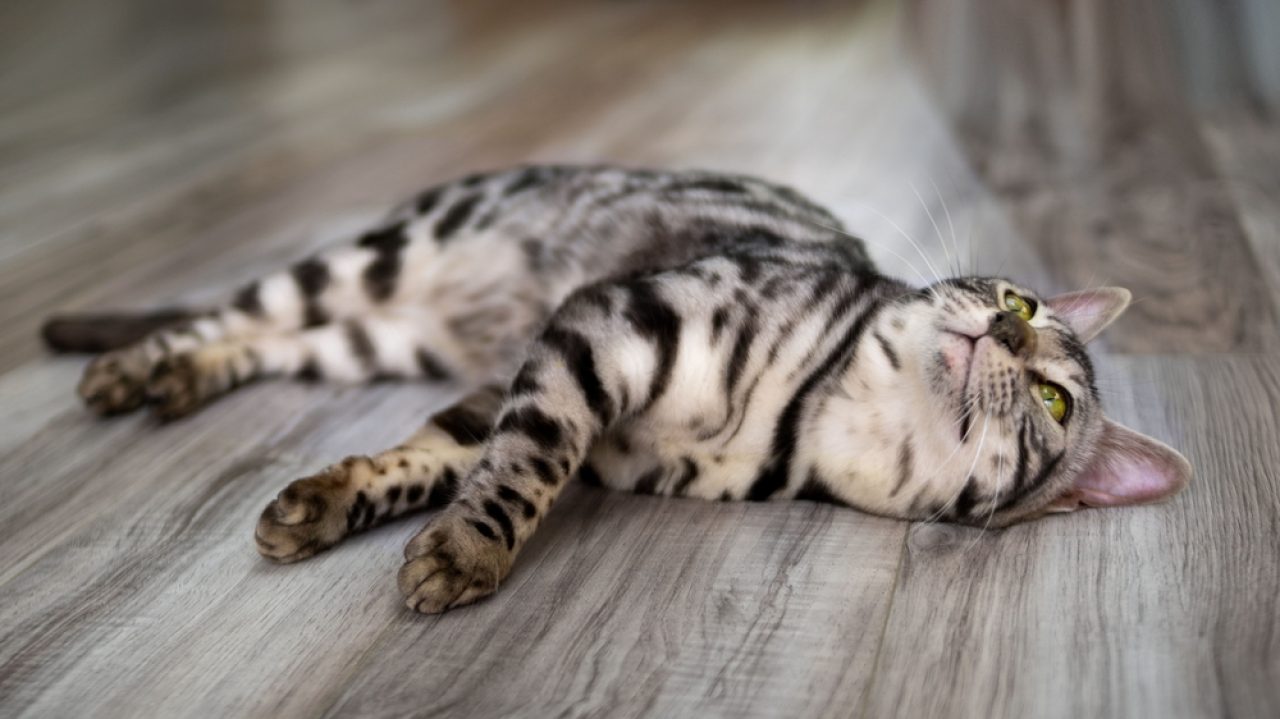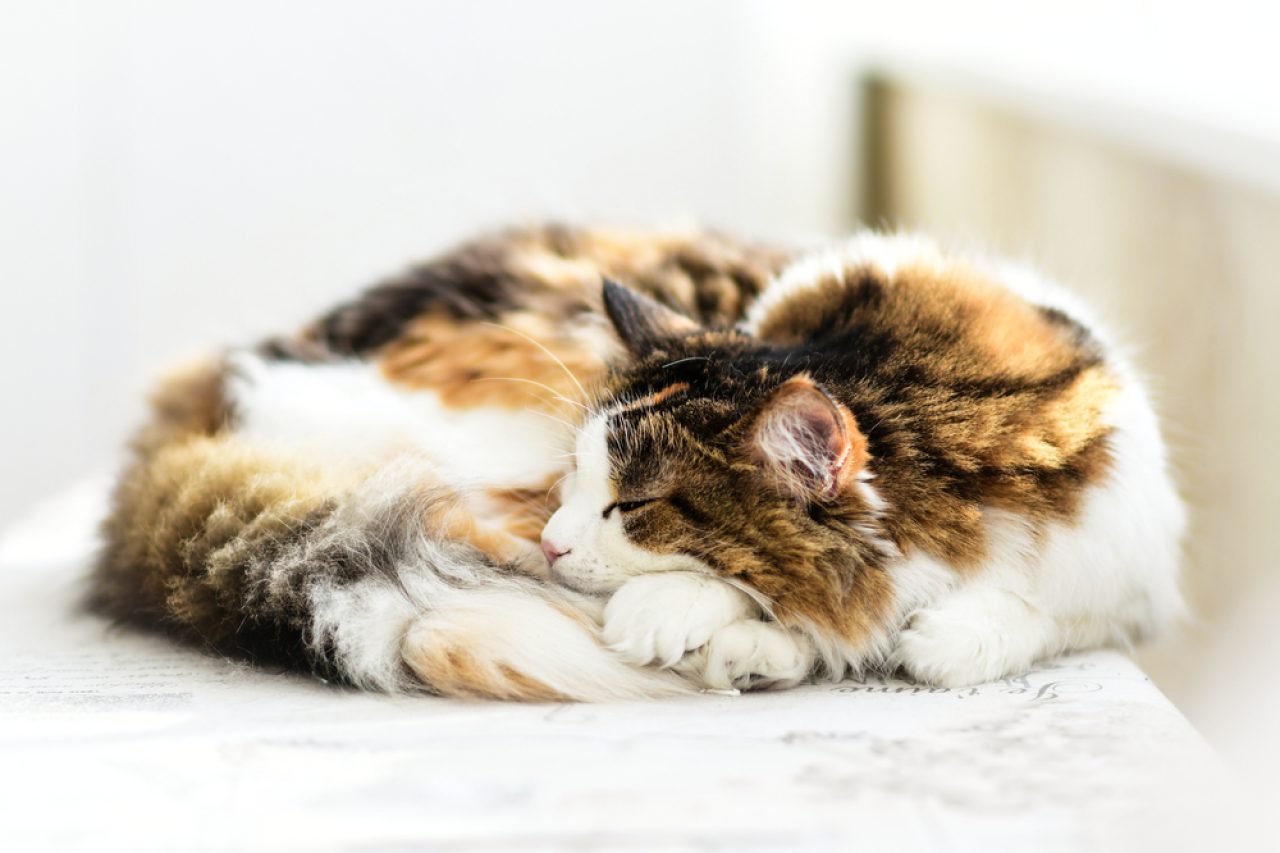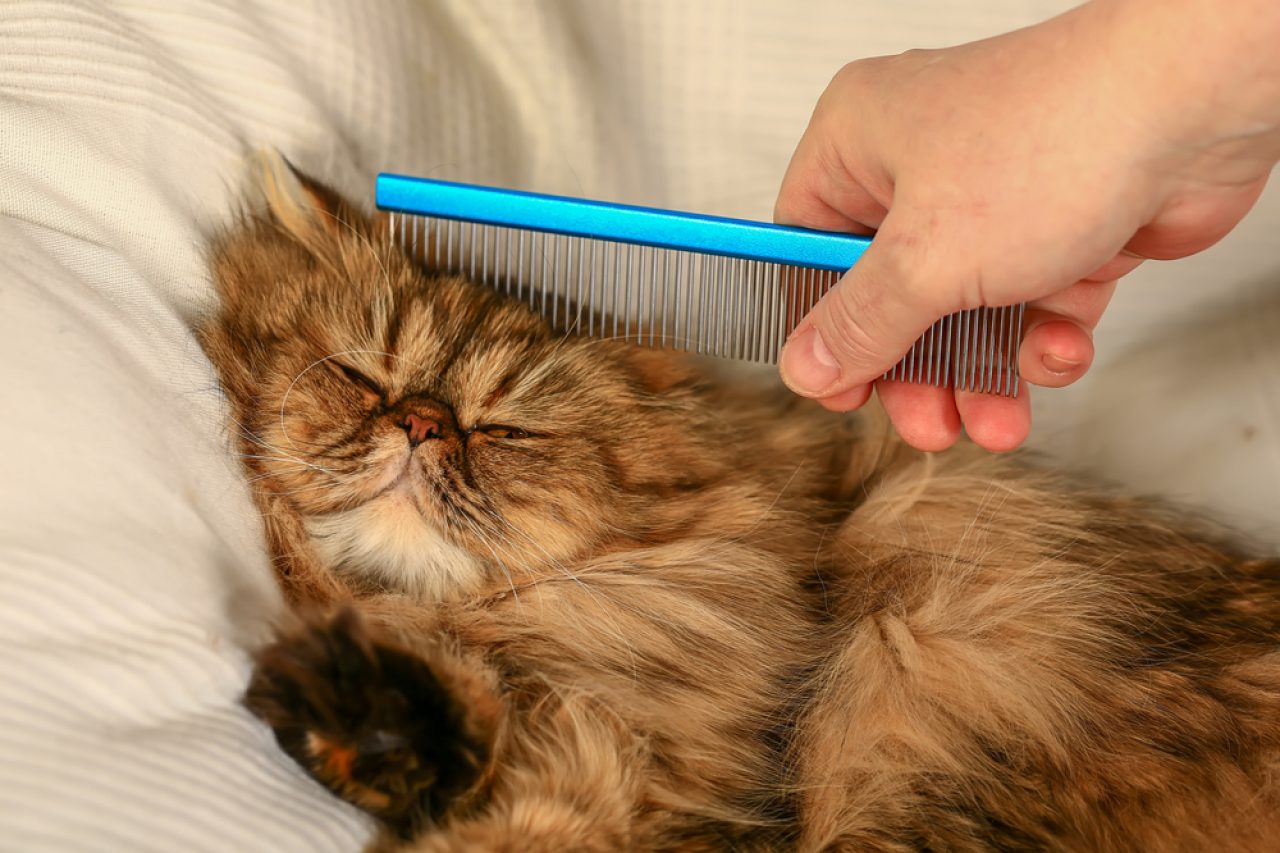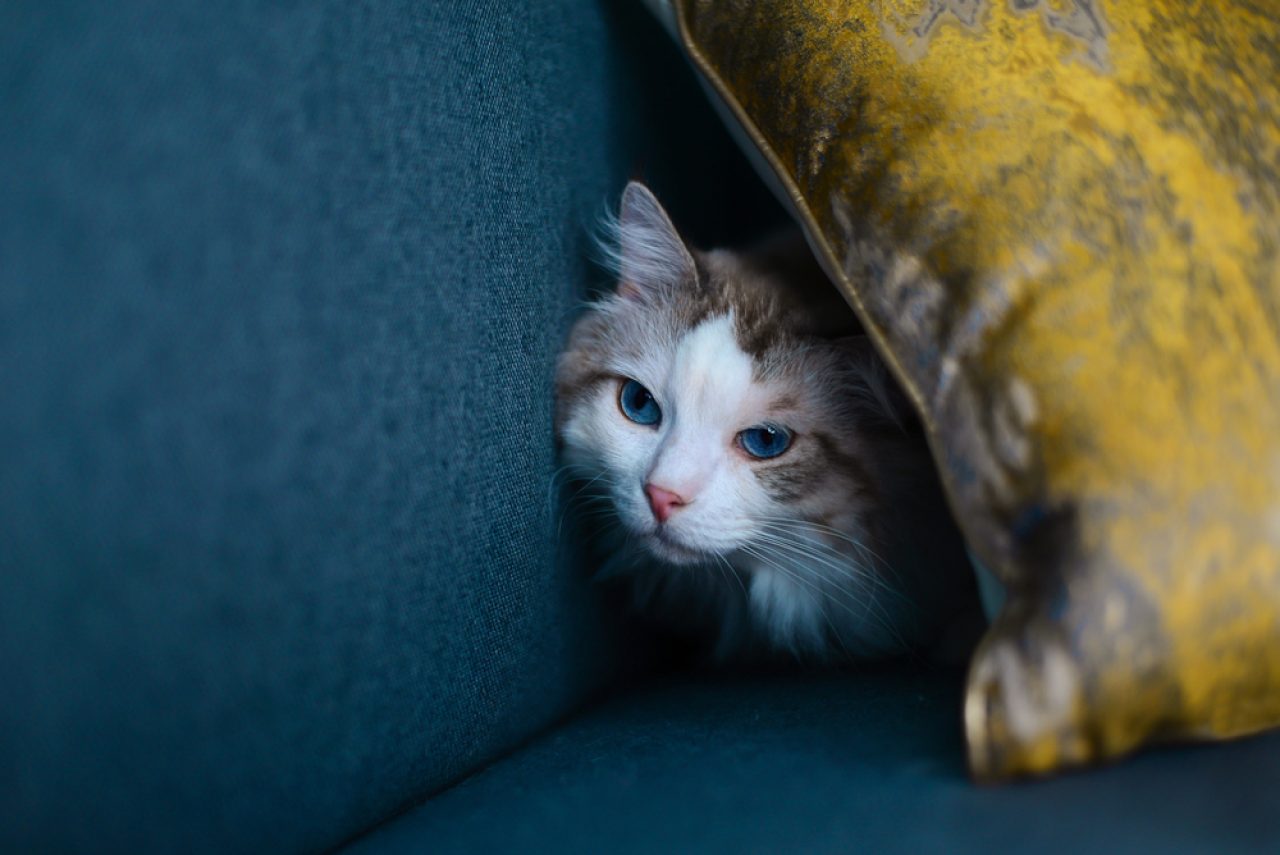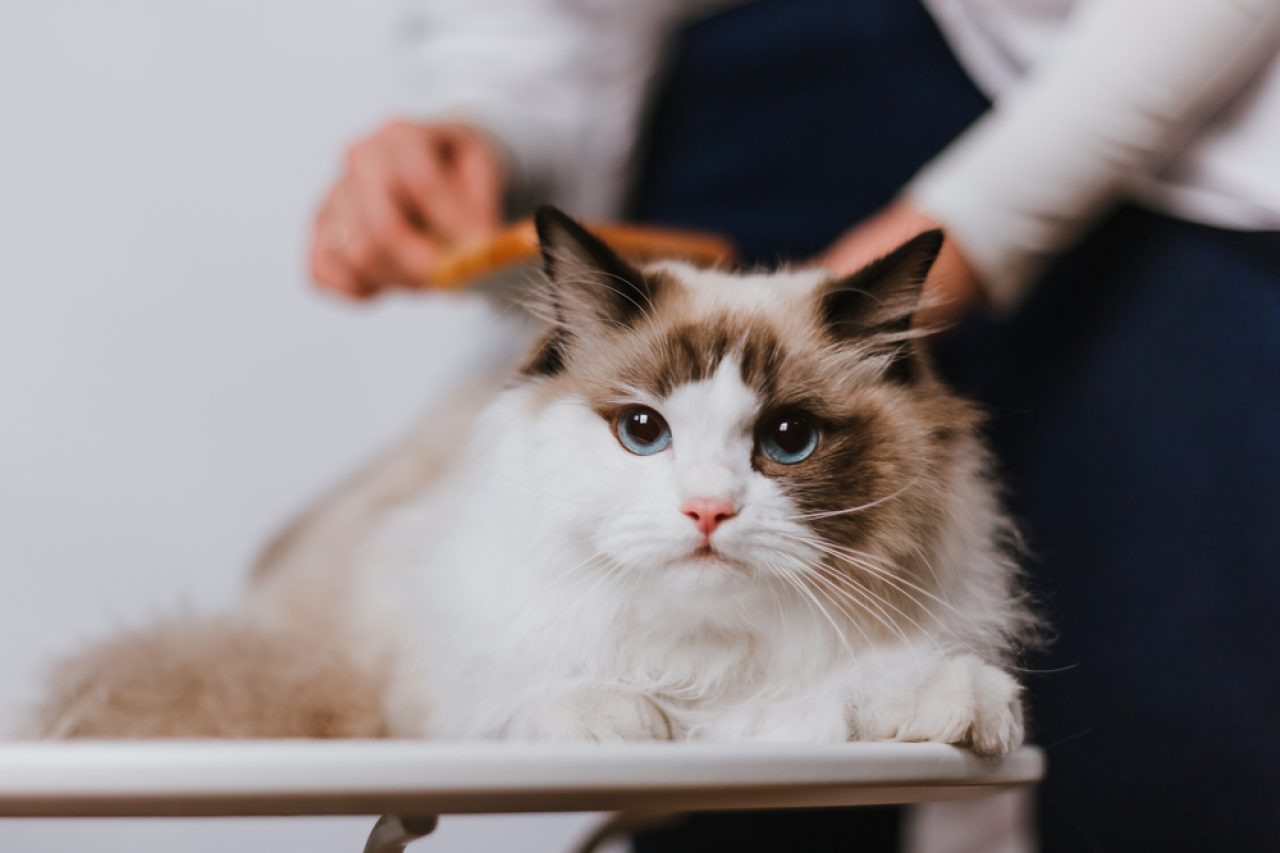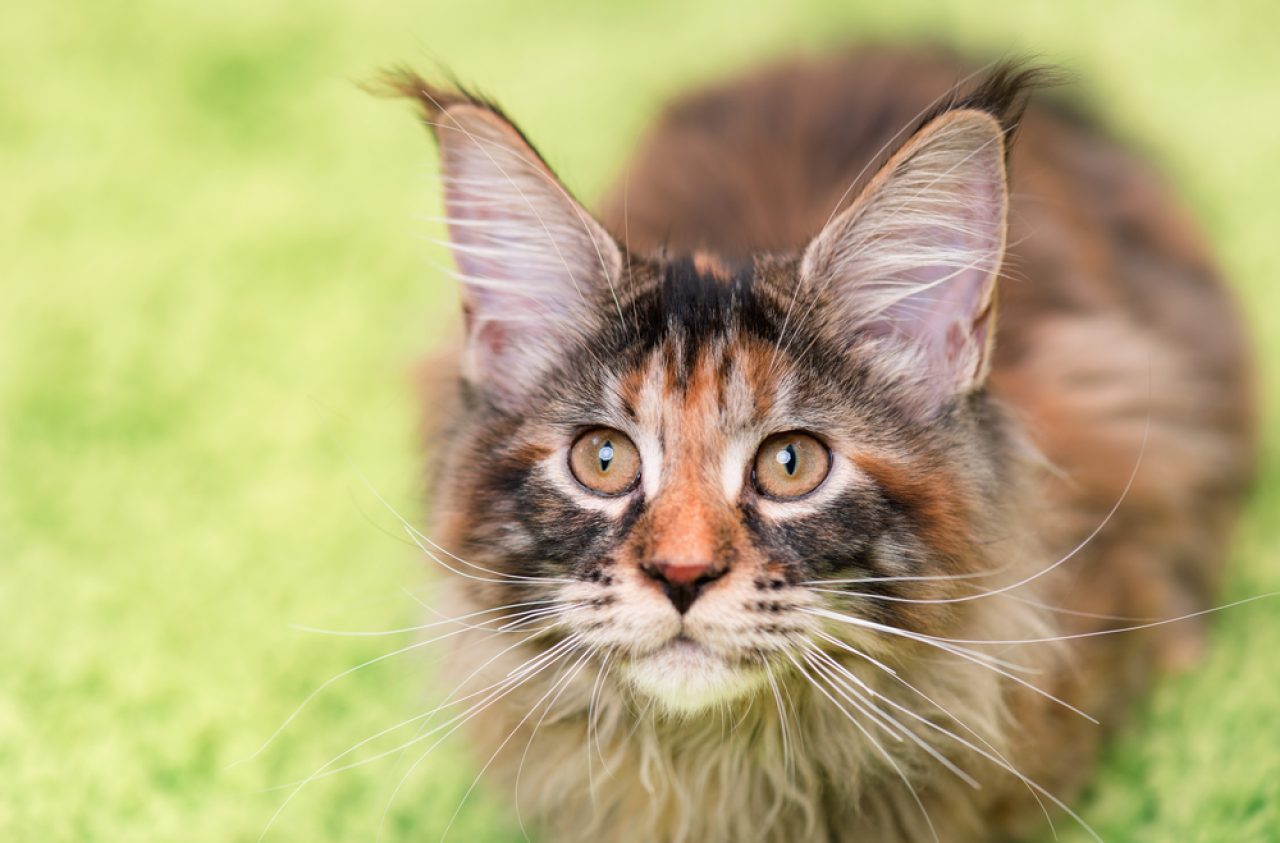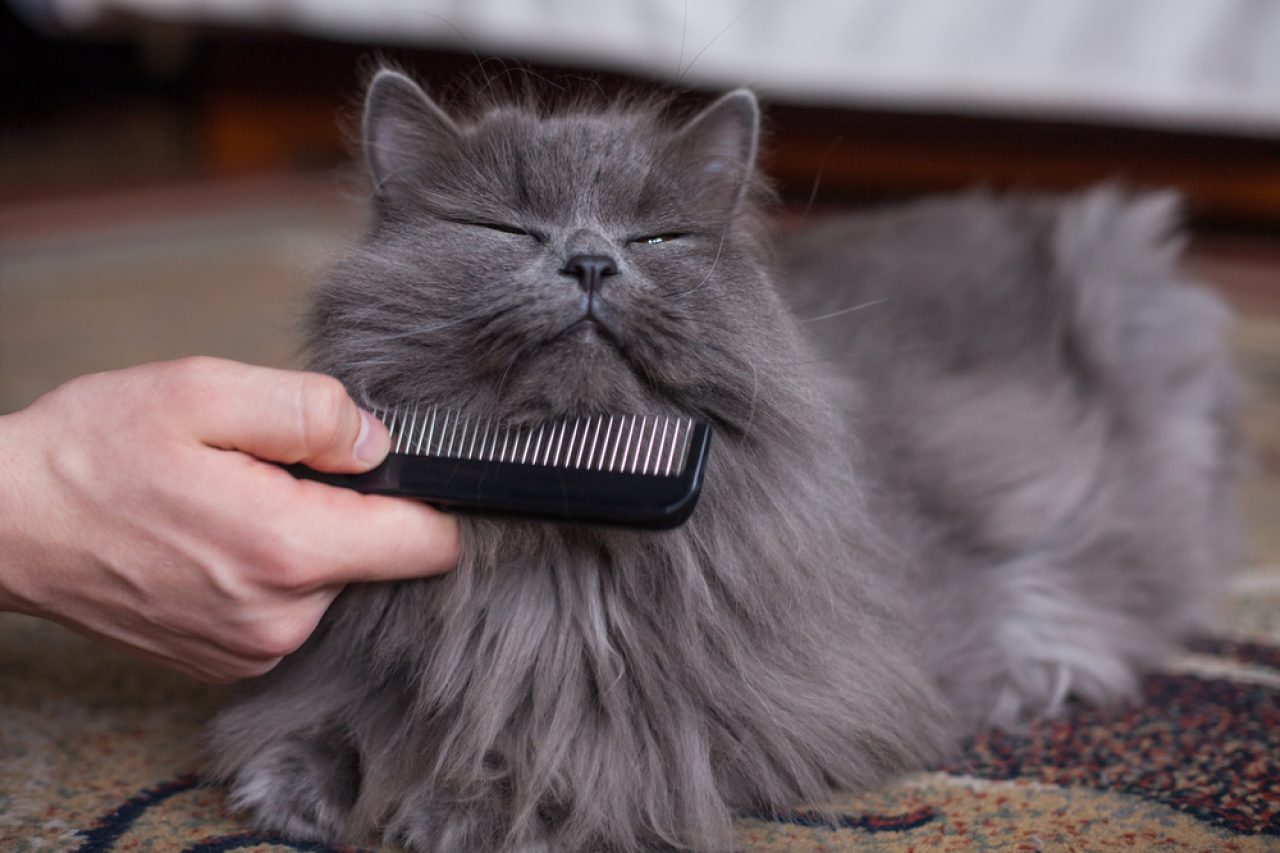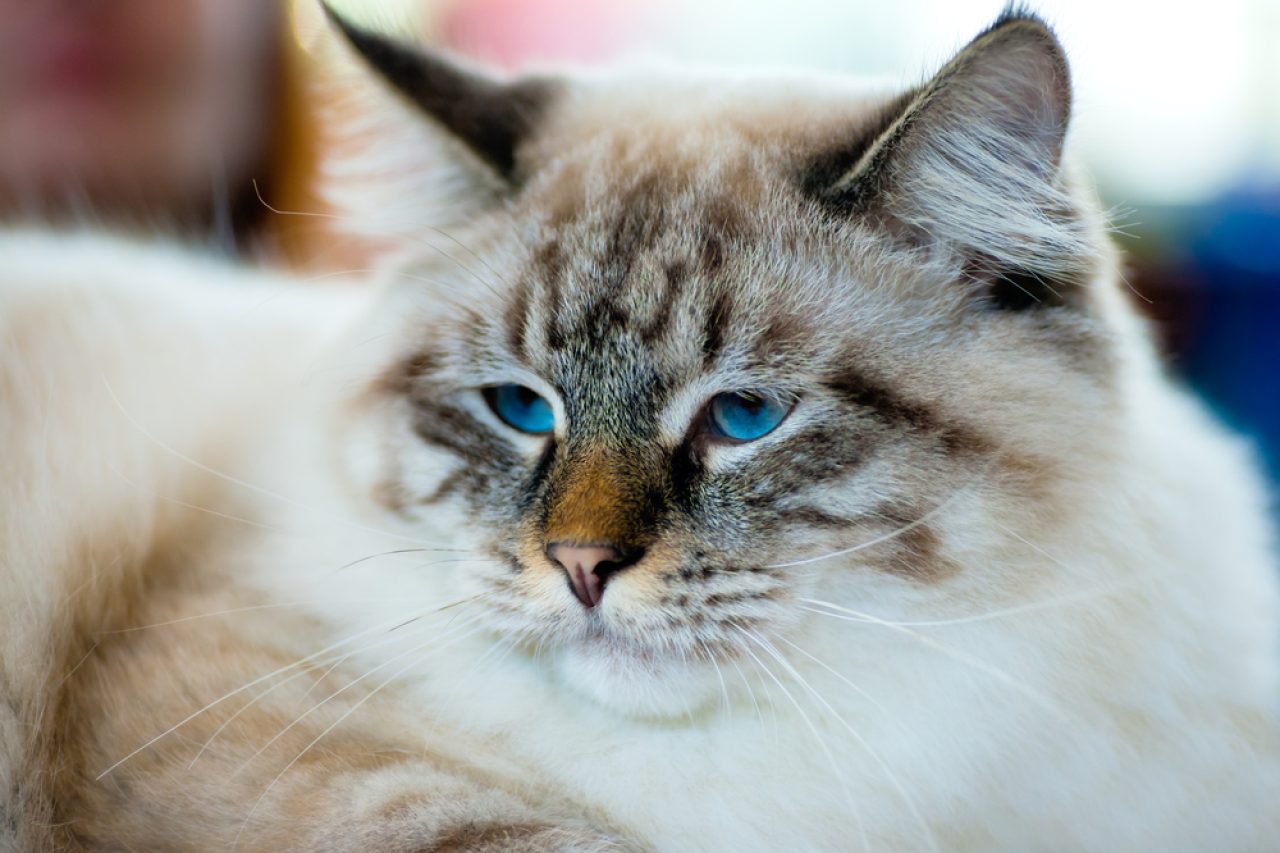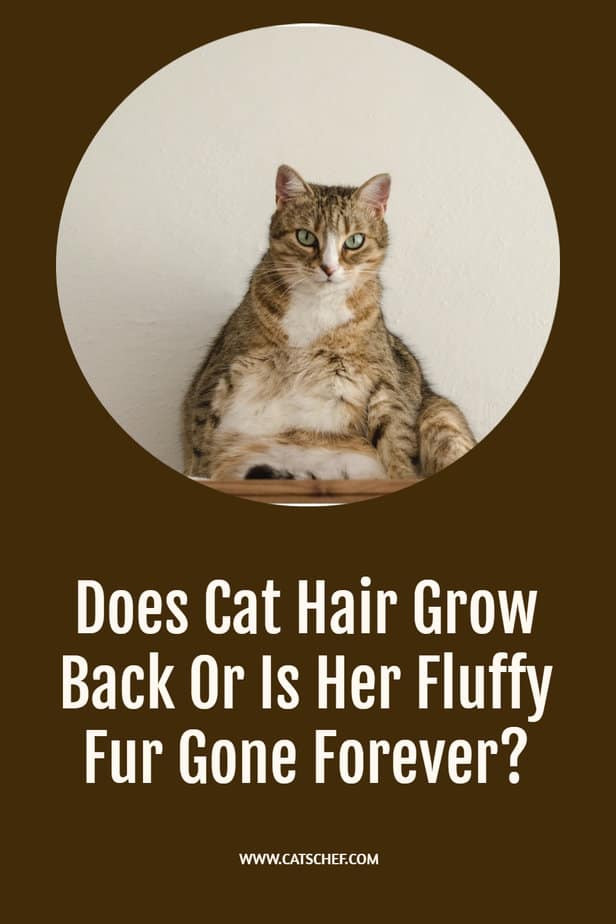📖 Table of Content:
Unfortunately, it’s not uncommon for felines to undergo surgery or deal with another health problem that might cause their hair to fall out. So, one of the most commonly asked questions all cat owners have is “Does cat hair grow back?”
I asked myself the same question when the vet told me my Pearl will need to have surgery. Luckily, he told me it was a routine surgical procedure, and her life wasn’t at risk. So, my only worry was will her beautiful hair be gone forever or it actually grows back.
After talking to professionals, they explained to me everything I needed to know. And since you’re here, I know you’re just as worried as I was. So, I will help you understand everything and you will become a real expert on this topic. Are you ready for that? If you are, scroll down and enjoy!
What’s the purpose of fur?
Firstly, we need to talk about the importance of cat hair. What do you think is why is it so important that it stays so fluffy and thick?
Just like our hair is there for a good reason, the same goes for felines. And even though it might feel like it’s there to make them look beautiful and cuddly, there is a much deeper story behind it.
During cold winter days, it’s there to keep them warm. There is nothing kitties hate more than feeling cold. It makes them feel anxious and they can’t relax and enjoy their naps, lunchtime, or even their favorite part of the day – playtime.
However, did you know that it’s actually essential for them to have their warm coat during those hot summer days too? Yes! That’s because their hair will keep them safe from the harmful sun rays that would hit their skin if there wasn’t a thick layer protecting it.
Should you cut your cat’s hair?
One of the most common questions people ask is whether we should cut our cat’s hair and whether will it even grow back. Their hair can fall out for many different reasons. Some of them are natural processes or responses to various kinds of diseases.
Some feline owners choose to cut their cat’s hair because they think it will make them look prettier. It’s usually the long-haired cat breeds that get a haircut. However, it’s very important to remember that that’s definitely not a valid reason to do such a thing.
If it’s not a natural response or a disease, then it means the hair should be there. It’s there for a reason and looking prettier is not a good enough reason to cut it. It might even cause some future problems, so it’s best not to risk it.
So, does cat hair grow back when you cut it without reason? Yes, but we don’t really recommend you do it.
The whole process of shaving is very stressful for kitties and they aren’t used to having short hair. It makes them feel anxious and their anxiety can further cause much more serious problems such as loss of appetite or lethargy.
On top of that, her skin will now get exposure to sun rays and it’s definitely not natural or healthy for her. The only time you should shave your feline’s hair is when the vet is the one who suggests it.
However, if you think her hair is knotted or it got so long that it makes it hard for them to see, it’s okay to trim it a bit. But that’s as far as you should go.
Valid reasons to cut her hair
Okay, I have to admit. There are still some valid reasons that will tell you “You should really get your cat’s hair cut, but don’t worry, it will grow back.” Every vet will tell you to do it if your kitty is dealing with one of these two problems.
1) Knotted fur
This is a problem that mostly occurs to long-haired kitties. Their fur is longer and it gets tangled more easily, especially if it’s not regularly brushed and groomed. Most cats groom themselves often, but obese felines might have a lot of problems doing that.
So when the hair becomes matted and knotted so much that it’s impossible to do anything with a brush or a comb, what should you do then?
This is one of the situations when it’s actually okay to trim her hair a bit. It’s best if you can try to cut just the part of her hair that you can’t untangle. However, if you feel like there’s nothing you can do, take her to the professional.
A professional will be able to cut all the hair that can’t be dealt with differently. Also, you won’t have to worry that you will accidentally cut your feline’s skin.
2) Operation
One of the saddest reasons why your cat might need a haircut is because she is waiting for surgery. It could be something about her health, spaying, or neutering. All of those situations will require her hair to get trimmed.
Does cat hair grow back? Yes, it does, but it will take some time. Her hair will be shaved so the surgeon can easily get to your feline’s skin during the procedure. On top of that, if one of her hair ends up in her body, it might cause serious problems, such as infections.
When the surgery is done, the vet will staple or stitch the operated part. It will stay like that until your kitty heals completely. And then when the day of removal comes, that part might need some shaving again. It depends on how much hair has already grown back.
Can I cut my cat’s hair without a professional?
Did you know that it’s actually easier to cut your cat’s skin than your own? That’s because her skin is more elastic and sensitive than yours and when you pull her fur you also pull her skin. So when you’re shaving your cat, you’re risking cutting her skin, too.
Shaving her at all isn’t recommended and people should only do it for medical reasons. Therefore, there’s no need for you to do so without the help of an expert. Cats get anxious easily and shaving is one of the things that make them feel very uncomfortable.
Unlike you, professionals know how to cut cats’ hair without risking cutting the skin. They are able to move and do whatever else is necessary with fur so cats aren’t hurting in the process.
However, if, for some reason, your only option is to shave your feline on your own, I have a piece of advice for you. The easiest and safest option is to just trim her hair using scissors. You can use a comb and then trim the hair just where your scissors are touching the comb.
That way, her skin will stay protected and most of her fur will be gone. On top of that, your kitty will be thankful because she truly hates the buzzing sound. This way, you will get close to your final goal and not make a traumatic experience for your furbaby.
Does cat hair grow back?
Yes, cat hair should grow back. However, we can’t exactly know how much time it will take for it to grow back completely. Just like there’s a difference in hair growth speed when it comes to people, there is a difference in felines too. So, not every cat will have to wait for the same period of time.
The most common case is that it takes up to 12 weeks to see a kitty whose hair is completely back. However, there are many different factors that might affect the speed of hair recovery. If the cat is living in great conditions, then her hair will probably grow faster.
If we’re talking about short-haired cats, then you definitely wouldn’t have to wait for 12 weeks to see that her hair grew back completely. On the other hand, if a kitty lives in poor conditions, you can expect for it to take much more time.
My Pearl had surgery a few years ago. Thankfully, it all went well, but her beautiful fur needed to be shaved. She’s a long-haired cat, and it took her around two and a half months to grow it back completely. And then I couldn’t even see where her shaved patch was.
However, my friend’s cat had surgery just a few days after Pearl. And it took him even more time to regrow it back completely. When we compared what we did to speed up their recoveries, I noticed some differences that might have helped my feline regrow it more quickly.
More about hair growth
I gave her lots of vitamins and calcium. And the vet advised me to use coconut oil after I’m sure that all of her scars are completely healed. It quickened my cat’s hair growth and it kept that part of her skin lustrous.
Don’t get confused if you see that her new fur feels different than the rest of it. It’s a common thing that it could get thicker or thinner than it was before, but it’s not anything that should make you worried.
Cat hair grows differently from ours. When the whole hair falls out, the new one appears. So when shaving, vets always leave a few cm of it. Then when it falls out, it enables new and healthy hair to grow.
If you notice that too much time has passed and your kitty is still hairless, take her to the vet to see what might be the problem that’s causing it.
Why isn’t my cat’s hair growing back?
Sometimes it’s possible that your cat’s hair will stop growing all of a sudden. People usually get anxious for their kitty because of it, as they are unfamiliar with the most common reasons why that happens. In case you’re one of them, I’m here to help you out. Here’s what might be the problem.
1) Ringworm
General shedding isn’t the only issue after which your cat’s hair won’t grow back. On some occasions, your cat’s body can shed hair only in certain, smaller, parts of her body. This sort of occurrence in which hair falls out in patches is known as alopecia.
Alopecia is a syndrome that can occur for a number of different reasons, such as diseases, infections, and parasites, one of which is ringworm. Ringworm, or dermatophytosis, is not a parasitical worm but rather a fungal infection that affects the skin of felines.
The most vulnerable parts of your cat’s body are the ears, face, and extremities. One of the most prominent indicators of ringworm infection is severe itching that your cat feels on the affected parts of her body.
Because of that itching, your cat will start to scratch the area where the infection presented itself which can lead to her scratching her fur off. The problem is that it is difficult for hair to grow back in the places where the infection manifested.
2) Allergies
Allergies occur in all mammals, and cats are no exception. Your cat’s immune system will react to a substance or food which normally doesn’t cause a reaction in other cats. Felines usually experience two main types of allergies: environmental allergies and food allergies.
When we say environmental allergy, we are referring to an allergy caused by different elements of your cat’s environment: dust, pollen, mold, products with toxic ingredients, etc.
Food allergies occur when the substance that is provoking an immune system reaction enters the gastrointestinal system via the food that your cat’s eating. Both types of allergy can cause hair shedding and alopecia, after which it is possible that the hair won’t grow back.
To be safe, it’s best to take your kitty to the nearby vet and get her tested for allergies. Most commonly, he will use a skin-prick test to determine if your cat has any.
3) Fur shedding
Probably the most common reason for your cat’s hair looking thinner is fur shedding. Fur shedding is a natural and irrevocable process that generally shouldn’t alarm you.
Feline fur will shed at particular points in the calendar year, most notably in the warmer seasons, because thinner hair makes it easier to cool off during hot summer days. It usually grows back once the seasons start to change.
Even though it shouldn’t pose a problem, you should be on the lookout when this occurs in order to notice if the hair is getting thinner or falling out completely. You can combat this issue by adding foods rich in Omega 3 and Omega 6 to your kitty’s diet.
Likewise, fur shedding takes place all over your cat’s body, so if the hair is getting thinner only in certain patches, it’s likely that there is some other issue.
4) Parasites
There are two main types of external parasites that are most commonly found on house cats: fleas and ticks. Just as is the case with dermatophytosis infection, the issue occurs when your cat’s skin itches to a point in which she scratches so aggressively that it causes bald patches.
Fleas are even more of an issue than ticks because fleas inject an anticoagulant into the skin of your cat. Some cats are allergic to anticoagulants and get alopecia as a result. The easiest way to spot them is to do a thorough check of your cat’s skin.
We advise that you use some sort of magnification device because fleas and ticks can be incredibly tiny and almost not visible to the naked eye.
5) Stress
When your cat faces challenges or changes in her environment (stressors), her body will produce responses. Stress can sometimes be positive, as it helps her body adapt to a new situation. But most commonly, stressing over a long period of time gives your cat physical and mental issues.
One of those occurring issues is aggressive and obsessive grooming, which then leads to alopecia. In addition, cats under stress indulge in repetitive behaviors that don’t have an actual purpose, like continuous scratching at certain areas or even biting themselves.
To minimize the risk of this happening, try to make sure you keep your cat calm by not changing her routine or altering her environment. There are also professional cat behaviorists. They can offer you help if you feel like the situation is not under your control.
Final words
We’ve reached the end of our quick lesson on the topic “Does cat hair grow back?” I hope you got all the answers you were looking for.
But most importantly, I hope you’ll be able to stop worrying because knowledge really is the power. And now you have the power to tell your brain it needs to stop overthinking.
I just want to remind you once more, that if there’s no medical reason for you to cut your cat’s hair, then you shouldn’t do it. I’m sure she looks perfect with her natural look, so don’t do anything that would make her feel stressed or anxious.
Instead, cuddle with her and let her thick coat keep you both warm on these upcoming cold winter days.
Read more: Why Do Cats Eat Their Hair? Time To Comb Your Worries Away
